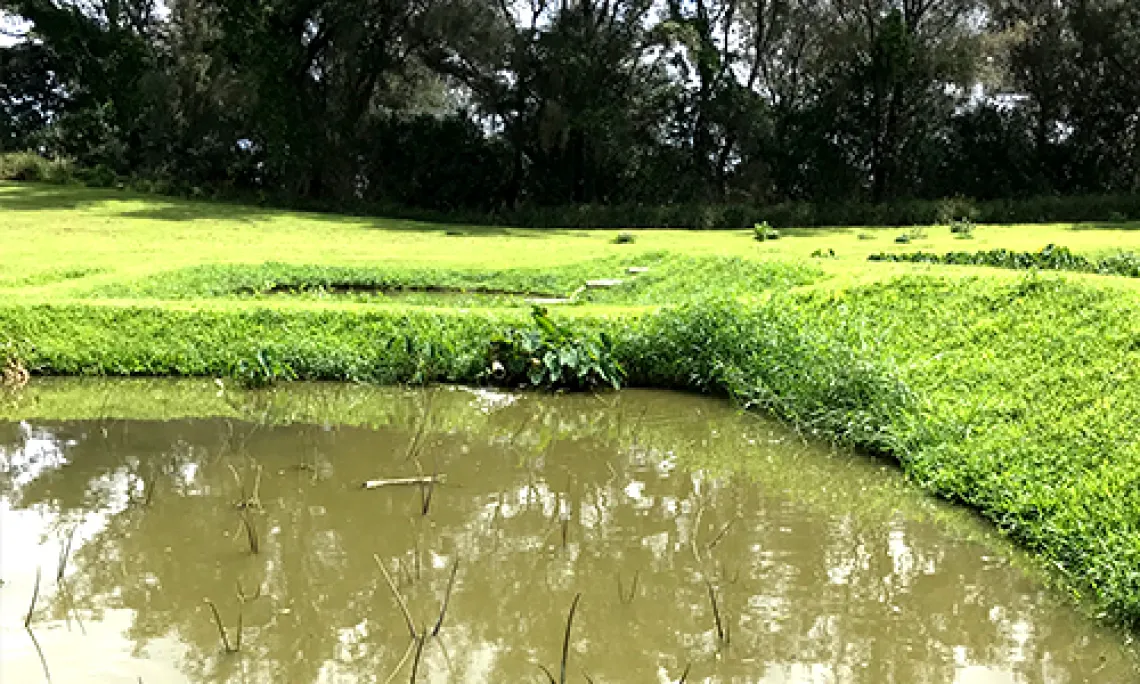NNI Research Staff Get Their Hands Dirty at the Canada Colloquium on the Big Island

From March 7-10, 2018, NNI Faculty Chair Stephen Cornell and NNI Research Director Miriam Jorgensen participated in the third annual Canada Colloquium presented by Fulbright Canada, the Center for the Study of Canada at the State University of New York College at Plattsburgh, and the College of Social Sciences at the University of Hawai‘i at Mānoa. Their paper, “What are the Limits on Social Inclusion? Organizing Indigenous Governance in Canada and the United States?” was one of only 26 selected for presentation and review at the colloquium, which was themed “Canada, the United States, and Indigenous Peoples: Sovereignty, Sustainability, and Reconciliation.”
Held on the Kohala Coast of the Big Island of Hawaii, one of the highlights of the gathering was a day of experiential learning at the Kohala Institute, which hosted a parallel youth leadership summit. Conference attendees joined the young leaders in the Institute’s traditional garden, where they learned to plant taro, strip taro leaves for cooking, and repair the sluiceway that provides fresh water to the taro ponds. Other highlights included a luncheon talk by Chad Baybayan, President, Polynesian Voyaging Society and a panel on Hawaiian sovereignty featuring Davianna Pômaika‘i McGregor, Professor of Ethnic Studies at the University of Hawai’i at Mānoa; Jonathon Osorio, Professor in the Kamakakūokalani Center for Hawaiian Studies, University of Hawai’i at Mānoa; Larry Kimura, Associate Professor of Hawaiian Language and Hawaiian Studies at the University of Hawai’i at Hilo; and D. Noelani Kalipi, Executive Director of the Kohala Institute and former counsel for Senator Daniel K. Akaka.
“I was energized by this opportunity to engage with a diverse set of scholars intent on generating groundbreaking work on Indigenous sovereignty and reconciliation. I enjoyed recharging intellectually as well as learning how to make NNI’s work more useful and applicable in both the academic and policy spheres,” said Jorgensen, “although I think I’m still carrying mud from the taro pond on some of my clothes.”

